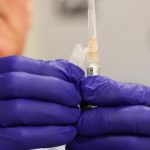How Your Gut Microbiome Affects Anxiety and Mental Well-Being
- Anxiety is directly linked to gut health, with imbalances in gut bacteria increasing inflammation and disrupting brain chemistry
- People with social anxiety have specific bacterial imbalances, including an overgrowth of harmful bacteria and a lack of beneficial strains that regulate mood and stress
- Diet plays a major role in mental health. Processed foods, high sugar intake, and unhealthy fats from vegetable oils fuel gut dysfunction, while fiber-rich and fermented foods help restore balance
- Probiotics and prebiotics help replenish good bacteria, improve neurotransmitter function, and reduce inflammation, leading to reduced anxiety levels
- Chronic stress weakens gut health, making anxiety worse, but strategies like sleep optimization, deep breathing, and regular movement support both the gut and the brain
![]() Anxiety disorders affect millions of people around the world, and often the first-line treatment is prescription drugs. However, many do not respond and fail to find relief. In an effort to find effective solutions, researchers are now looking into the role of the gut microbiome, as it’s been shown to communicate with your brain, ultimately affecting your mood and overall mental health.
Anxiety disorders affect millions of people around the world, and often the first-line treatment is prescription drugs. However, many do not respond and fail to find relief. In an effort to find effective solutions, researchers are now looking into the role of the gut microbiome, as it’s been shown to communicate with your brain, ultimately affecting your mood and overall mental health.
How Does Your Gut Bacteria Influence Your Anxiety Levels?
A study published in Nutrients investigated how the gut microbiome influences anxiety disorders, focusing on the biological pathways that link gut bacteria to stress and emotional regulation.
The researchers analyzed data from individuals with varying levels of anxiety and compared their gut microbiota composition to those with no reported anxiety symptoms. Their goal was to determine whether specific bacterial imbalances contributed to heightened anxiety and whether modifying the gut environment will serve as an effective intervention.1
• People with anxiety had differences in their gut microbiota compared to those without anxiety — Specifically, harmful bacteria that trigger inflammation were more abundant, while beneficial bacteria that regulate neurotransmitters and gut health were severely depleted.
• Proinflammatory cytokines interfere with neurotransmitter production — This imbalance was linked to increased production of proinflammatory cytokines, which are molecules that signal the immune system to mount a defense against a perceived threat. These inflammatory compounds were found to interfere with neurotransmitter production, disrupting serotonin and dopamine levels, both of which play a role in regulating mood and stress response.
• Gut dysbiosis impacts your body’s ability to handle stress — Individuals with higher anxiety levels had reduced levels of Faecalibacterium prausnitzii, a beneficial bacterial species known for its anti-inflammatory properties.
• This bacterium also produces butyrate — This short-chain fatty acid (SCFA) strengthens the gut barrier, reduces inflammation, and supports brain function.2
Without enough butyrate-producing bacteria, the gut lining becomes compromised, allowing harmful bacterial toxins to leak into the bloodstream, a condition known as “leaky gut.” This, in turn, increases systemic inflammation and amplifies anxiety symptoms.
• Probiotics affect your body’s ability to control stress — Another major discovery was the role of Lactobacillus and Bifidobacterium strains in regulating the hypothalamic-pituitary-adrenal (HPA) axis, which is the body’s stress-response system. The study found that individuals with lower levels of the mentioned probiotics exhibited a heightened cortisol response — a sign of an overactive stress system.
• Excess cortisol keeps the body in a prolonged state of stress — This makes it harder for you to relax, sleep, and manage emotions. Restoring these beneficial bacteria will help bring cortisol levels back to normal, reducing overall anxiety and improving resilience to stress.
• Your gut bacteria also affects your mood — Beyond bacterial composition, the researchers also examined how gut metabolites — compounds produced by gut bacteria — impact anxiety. One of the most notable findings was the reduced production of gamma-aminobutyric acid (GABA), a neurotransmitter responsible for calming the nervous system.
• GABA deficiency is strongly linked to anxiety disorders — It prevents the brain from shutting off excessive worry and stress signals and probiotics, particularly Lactobacillus rhamnosus, play a key role in producing GABA. The study found that individuals with anxiety had significantly lower levels of this species, theorizing that replenishing it will help restore a sense of calm and relaxation.
• Your diet is important in maintaining a balanced gut microbiome — Researchers noted that a fiber-rich diet, including prebiotic foods, raw grass fed dairy and nutritious spices like ginger feed beneficial bacteria, allowing them to thrive and produce anti-inflammatory compounds like butyrate, which helps protect against anxiety and stress-related disorders.
• Gut bacteria plays a role in brain inflammation — Individuals with anxiety had increased levels of Desulfovibrio, a bacterial strain known to produce endotoxins, which are harmful substances that trigger an immune response. These endotoxins cross the blood-brain barrier and activate microglia, the brain’s immune cells, leading to neuroinflammation. This type of inflammation has been linked to mood disorders, including depression and anxiety.3
The Gut Bacteria Is a Driving Force of Optimal Mental Health
In a similar study, published in Translational Psychiatry,4 researchers investigated the link between the gut microbiome and social anxiety disorder (SAD). They analyzed stool samples from 31 participants diagnosed with SAD and compared them to 18 healthy individuals, which served as the control group.
Using whole-genome sequencing, the researchers examined the specific bacterial composition and functional activity of the gut microbiome in both groups. Their findings revealed distinct microbial imbalances in those with social anxiety, showing that gut bacteria influences stress response and emotional regulation in different ways.
• Participants with social anxiety had a significantly different gut microbiome composition — Notably, those with SAD exhibited a higher presence of certain bacterial strains linked to inflammation and neurotransmitter disruption, while beneficial bacteria were present in much lower amounts.
These differences were not subtle — specific bacterial populations showed a strong correlation with anxiety symptoms, indicating that gut health is be a key factor in the development or worsening of social anxiety.
• One of the most striking findings was the elevated levels of Anaeromassilibacillus — This lesser-known bacterial genus was significantly more abundant in those with SAD. Anaeromassilibacillus has been linked to inflammatory responses and metabolic disturbances, both of which contribute to heightened stress sensitivity.
• In contrast, the healthy control group had higher levels of Parasutterella excrementihominis — This beneficial bacterial species is known to support gut barrier integrity and reduce inflammation. The presence of these bacteria — or lack thereof — shows the power of microbial imbalances to influence brain chemistry and anxiety-related behaviors.
• Functional differences in the gut microbiome — Individuals with social anxiety had an overactive “aspartate degradation” pathway in their gut bacteria. This means their microbiome was breaking down the amino acid aspartate at a much higher rate compared to healthy individuals.
• Aspartate is essential for neurotransmitter production — It’s particularly important in the creation of glutamate, which plays a major role in brain function and mood regulation. When gut bacteria interfere with this process, it leads to disruptions in neurotransmitter balance, contributing to increased anxiety and emotional distress.
The implications of this are significant because the gut microbiome communicates with the brain through various pathways, including the production of neurotransmitters, immune system regulation, and the vagus nerve. When gut bacteria become imbalanced, it increases the risk of chronic inflammation and disrupts the production of key neurotransmitters like GABA.
• Interestingly, gut microbiome differences remained consistent — This was seen even after the researchers controlled for factors such as diet, exercise, and body mass index (BMI). This means that the microbial imbalances were not just the result of poor lifestyle habits but were directly associated with the presence of SAD itself.
This reinforces the hypothesis that treating gut health is a viable approach to managing anxiety, rather than relying solely on psychiatric medications or therapy.
The study’s findings reinforce a growing body of research showing that probiotics and targeted dietary changes help restore microbial balance and, in turn, alleviate symptoms of anxiety. Traditional psychiatry has long focused on neurotransmitter imbalances in the brain, but this study shows that those imbalances also begin in the gut.
Fixing Your Gut Helps Manage Anxiety and Depression
Another study looked at the intricate relationship between gut microbiota and mental health, specifically focusing on anxiety and depression. Researchers sought to understand how disruptions in gut bacteria contribute to these conditions and reviewed multiple approaches for restoring gut health, including dietary changes, probiotics, prebiotics, synbiotics, and even fecal microbiota transplantation (FMT).5
• The connection between gut microbiota and inflammation — Chronic inflammation has long been associated with depression, and the study highlighted how an imbalanced gut microbiome directly fuels this process. Increased levels of proinflammatory cytokines were found in individuals with anxiety and depression.6
• Diet influences the diversity of your gut microbiota — The research also pointed to a dietary factor worsening the problem — processed and refined sugar diets disrupt the balance of gut bacteria. Western dietary patterns, which are abundant in processed foods and low in fiber, were shown to reduce beneficial bacterial species like Lactobacillus and Bifidobacterium, which support mental health.7
• The impact of SCFAs on overall gut and mental health — One noteworthy observation mentioned in the study involves SCFAs, such as butyrate, acetate and propionate. These compounds play a crucial role in reducing inflammation and maintaining the integrity of the gut barrier. Moreover, boosting the production of these SCFAs “reduces stress-induced depressive behaviors.”8
• Prebiotics nourish the beneficial bacteria already living in your gut — Consuming prebiotics like fructo-oligosaccharides (found in fruits and vegetables such as nectarines and scallions9) increased levels of beneficial bacteria and reduced inflammation.
These compounds were found to improve gut microbiota composition and enhance the production of SCFAs. Importantly, the study noted that combining prebiotics with probiotics — referred to as synbiotics — had the most substantial effects on reducing anxiety and depressive symptoms.10
• Bringing in probiotics from another person’s gut — Another intervention explored in the study was FMT. This procedure involves transferring stool from a healthy donor into the gut of a patient to restore microbial diversity.
While primarily used to treat severe gut infections, FMT has been shown to help improve mental health by reintroducing beneficial bacteria that regulate inflammation and neurotransmitter production.
Patients who received FMT from healthy donors experienced not only improved gut health but also reductions in anxiety and depressive symptoms. However, this approach is still being researched and is not yet widely available for mental health treatment.11
How to Restore Your Gut and Reduce Anxiety Naturally
If anxiety is controlling your life, now’s a good time to check the current state of your gut health. As mentioned earlier, an imbalanced gut microbiome triggers inflammation, disrupts neurotransmitter production, and increases stress hormone levels — all of which fuel anxiety. So, your goal now is repairing your gut and easing anxiety with the following strategies:
1. Rebuild your gut microbiome with the right foods — What you eat directly impacts the bacteria in your gut. If your diet is full of ultraprocessed foods, sugars, and unhealthy fats, you are feeding harmful bacteria that promote inflammation and anxiety. To get back on the right track, switch to whole, natural foods that nourish beneficial gut bacteria, such as:
• Fermented foods like kefir, yogurt with live cultures, sauerkraut, and kimchi to introduce good bacteria.
• Fiber-rich vegetables such as carrots, onions, garlic, and asparagus, which act as prebiotics (food for good bacteria).
• Polyphenol-rich foods like berries, dark chocolate, and green tea to support microbial diversity.
• Avoiding artificial sweeteners and processed foods that kill off beneficial bacteria.
2. Introduce key probiotic strains to nourish your gut — As noted in the research, probiotics have been shown to reduce anxiety by improving neurotransmitter function and overall gut health. I recommend you eat probiotic-rich foods such as kimchi and kefir. If you’re not fond of fermented foods, a high-quality probiotic supplement with the following strains will help:
• Lactobacillus helveticus and Bifidobacterium longum — These strains have been shown to lower cortisol (a stress hormone).
• Lactobacillus rhamnosus — This strain helps boost GABA production.
• Akkermansia — A keystone species with significant health benefits.
3. Reduce gut inflammation that fuels anxiety — Chronic inflammation in the gut is a major driver of anxiety. When your gut lining is weakened, inflammatory compounds leak into your bloodstream and disrupt brain function.
Reduce gut inflammation by minimizing your intake of vegetable oils, fried restaurant foods, and ultraprocessed products. To repair your gut lining, drink bone broth, which contains glutamine. Add turmeric and ginger to your diet as well — these are powerful anti-inflammatory agents that support gut health.
4. Support the gut-brain axis by boosting your SCFA production — Beneficial gut bacteria produce SCFAs, such as butyrate, which help maintain a strong gut barrier, and even reduce neuroinflammation.12
To encourage SCFA production, I recommend you eat whole foods that are high in fiber, such as fruits like berries and pears. Vegetables are also a good source, and it’s also a good strategy because it diversifies your nutrient intake. For a more in-depth explanation on how to do this properly, read “Butyrate — Fueling a Normal Gut Environment and Supporting Energy Production.”
5. Manage stress to protect your gut microbiome — Stress damages your gut bacteria and increases inflammation, worsening anxiety. So, I recommend you incorporate the following healthy habits because a healthy diet can only do so much to ward off the effects of stress:
• Sleep deprivation disrupts gut bacteria and increases cortisol. Aim for at least seven to nine hours per night.
• Practice deep breathing or meditation to lower stress hormones and calm the nervous system.
• Get outside in natural sunlight to regulate your circadian rhythm and boost your mood.
• Engage in regular movement, such as walking or yoga, to support both digestion and stress relief.
Frequently Asked Questions (FAQs) on the Impact of the Gut Microbiome on Anxiety
Q: How does gut bacteria influence anxiety levels?
A: Research shows that individuals with anxiety have imbalanced gut microbiota, characterized by an excess of harmful bacteria and depleted beneficial strains. This imbalance increases inflammation and disrupts neurotransmitter production, leading to heightened stress and mood disorders.
Q: What role do probiotics play in managing anxiety?
A: Probiotics, particularly strains like Lactobacillus and Bifidobacterium, help regulate the body’s stress-response system by balancing cortisol levels and supporting neurotransmitter production. They also aid in reducing inflammation and improving gut barrier function, which contributes to better mental health.
Q: How does diet impact gut health and anxiety?
A: A fiber-rich diet with prebiotic foods, fermented products, and polyphenol-rich ingredients supports beneficial gut bacteria. In contrast, processed foods, artificial sweeteners, and excessive sugar disrupt microbial balance, leading to increased inflammation and anxiety.
Q: What is the connection between gut inflammation and anxiety disorders?
A: An imbalanced gut increases your risk of a leaky gut, allowing harmful bacterial toxins to enter the bloodstream and trigger systemic inflammation. This inflammation interferes with neurotransmitter function and has been linked to anxiety and depression.
Q: Are there natural treatments for anxiety related to gut health?
A: Probiotics, prebiotics, synbiotics (a combination of probiotics and prebiotics), and even fecal microbiota transplantation are being viable solutions to restoring your gut balance. Lifestyle changes, including stress management, regular exercise, and sufficient sleep, also play a crucial role in maintaining a healthy gut-brain connection.











